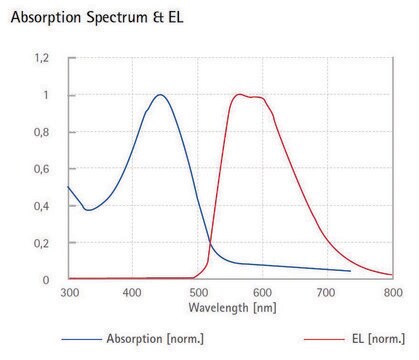おすすめの製品
詳細
PL - 426 nm (in THF)
品質水準
分子量
Mw 50,000-150,000 by GPC
環境により配慮した代替製品の特徴
Design for Energy Efficiency
Learn more about the Principles of Green Chemistry.
sustainability
Greener Alternative Product
バンドギャップ
2.5 eV
溶解性
THF: soluble
chlorobenzene: soluble
chloroform: soluble
dichlorobenzene: soluble
λmax
376 nm in THF
軌道エネルギー
HOMO -5.3 eV
LUMO -2.8 eV
環境により配慮した代替製品カテゴリ
詳細
We are committed to bringing you Greener Alternative Products, which adhere to one or more of The 12 Principles of Greener Chemistry. This product belongs to Enabling category of greener alternatives thus aligns with "Design for energy efficency". Hole transport organic materials allow perfect energy level alignment with the absorber layer and therefore efficient charge collection, are prone to degradation in ambient conditions.Click here for more information.
アプリケーション
PFO exhibits excellent luminescent properties, making it particularly valuable as a light-emitting polymer. It is commonly used as an active material in the development of blue and green organic light-emitting diodes (OLEDs) and displays. It has the ability to confine excitons within its polymer chain, allowing for efficient energy transfer and emission of light which property is crucial in efficient OLEDs and other optoelectronic devices. It can be used as a hole transport layer or electron transport layer in organic electronic devices such as OFETs, sensors, and other thin-film devices.
PFO is a highly-fluorescent conjugated hole transport polymer material (HTM) that generates a blue light. It has wide applications in organic light-emitting diodes (OLED), organic photovoltaic (OPV), diagnostics and separation of semiconducting single walled carbon nanotubes. It was originally reported as host (and Ir(HFP)3 as the guest) in high-performance electrophosphorescent light-emitting diodes (LEDs) in 2003. PFO use in electron transport layer in OPV enables both high device fill-factor and power conversion efficiency of photovoltaic devices. PFO exhibits extraordinarily large cross-sections for two-photon excitation (as high as 105 GM19), which means that it is promising for use in dual O2 and pH mapping using two-photon-based imaging techniques. It was reported in highly stable and sensitive imaging systems (eg. intracellular fluorescence resonance energy transfer, FRET, and electrochemiluminescence immunosensor) and pH sensing. Further, a recent review outlined the capability of PFO to selectively wrap and separate semiconducting singlewalled carbon nanotubes (s-SWCNTs) as a promising simple method to disperse and separate s-SWNTs. Compared with devices based on traditional semiconductors (e.g., Si), this would enable scalable, smaller, flexible and stretchable devices with lower power consumption, and faster switching speed thanks to unique s-SWCNTs properties.
関連製品
製品番号
詳細
価格
保管分類コード
11 - Combustible Solids
WGK
WGK 3
引火点(°F)
Not applicable
引火点(℃)
Not applicable
適用法令
試験研究用途を考慮した関連法令を主に挙げております。化学物質以外については、一部の情報のみ提供しています。 製品を安全かつ合法的に使用することは、使用者の義務です。最新情報により修正される場合があります。WEBの反映には時間を要することがあるため、適宜SDSをご参照ください。
Jan Code
923214-BULK:
923214-100MG:
923214-250MG:
923214-VAR:
最新バージョンのいずれかを選択してください:
Simultaneous imaging of intracellular pH and O2 using functionalized semiconducting polymer dots
W. Xu et al
Journal of Material Chemistry B: Materials for Biology and Medicine, 4, 292-298 (2016)
Huiyun Yang et al.
Biosensors & bioelectronics, 116, 16-22 (2018-06-01)
In this work, poly[9,9-dioctylfluorenyl-2,7-diyl] (PFO) dots is discovered to display an appealing dual enhancement effect for the electrochemiluminescence (ECL) system of N-(aminobutyl)-N-(ethylisoluminol)/hydrogen peroxide (ABEI/H2O2), which not only enhances the ECL intensity of ABEI but also catalyzes decomposition of H2O2 to
Highly Stable Core?Shell Structured Semiconducting Polymer Nanoparticles for FRET-Based Intracellular pH Imaging
B. Bao et al
Advanced Helathcare Materials, 8 (2019)
Solution p-doped fluorescent polymers for enhanced charge transport of hybrid organic-silicon nanowire photovoltaics
P.T. Tsai et al
Organic Electronics, 34, 246-253 (2016)
High-performance polymer-based electrophosphorescent light-emitting diodes
X. Gong et al
Journal of Polymer Science, 41, 2691-2705 (2003)
ライフサイエンス、有機合成、材料科学、クロマトグラフィー、分析など、あらゆる分野の研究に経験のあるメンバーがおります。.
製品に関するお問い合わせはこちら(テクニカルサービス)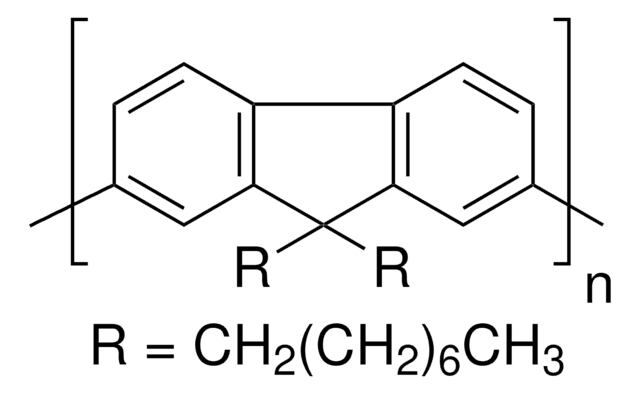
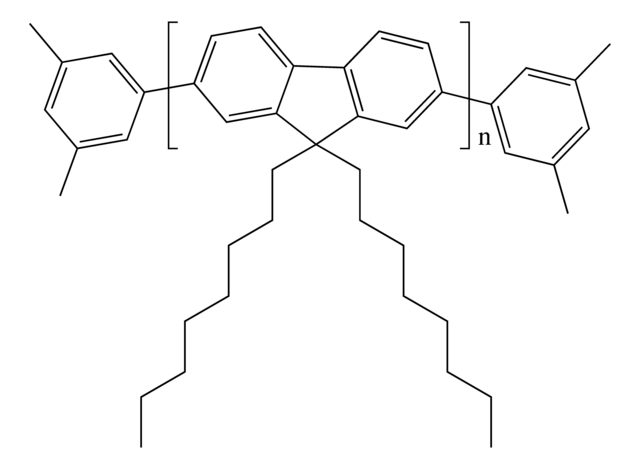
![ポリ[(9,9-ジ-n-オクチルフルオレニル-2,7-ジイル)-alt-(ベンゾ[2,1,3]チアジアゾール-4,8-ジイル)] average Mn ≤25000](/deepweb/assets/sigmaaldrich/product/structures/428/661/1c4ebb98-9d51-48c0-96c7-e556ca425aa4/640/1c4ebb98-9d51-48c0-96c7-e556ca425aa4.png)
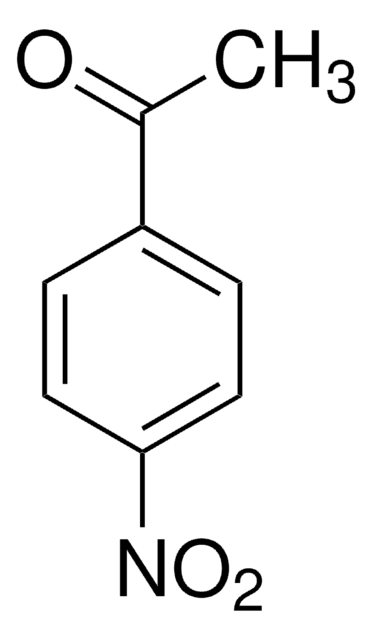

![ポリ[2-メトキシ-5-(2-エチルヘキシルオキシ)-1,4-フェニレンビニレン] average Mn 40,000-70,000](/deepweb/assets/sigmaaldrich/product/structures/344/488/b8f8179d-3970-4deb-a754-adda88cdb36f/640/b8f8179d-3970-4deb-a754-adda88cdb36f.png)
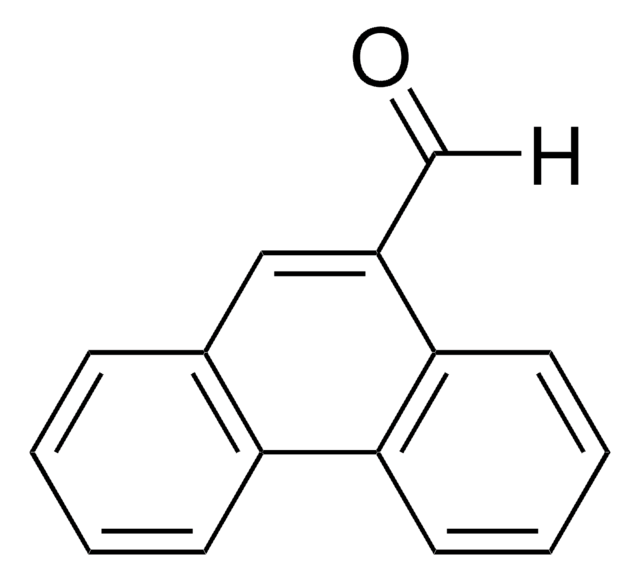
![ポリ[(p-フェニレンビニレン)-alt-(2-メトキシ-5-(2-エチルヘキシルオキシ)-p-フェニレンビニレン)]](/deepweb/assets/sigmaaldrich/product/structures/147/963/61b421da-530b-4acf-8851-ecb9492e90ba/640/61b421da-530b-4acf-8851-ecb9492e90ba.png)
